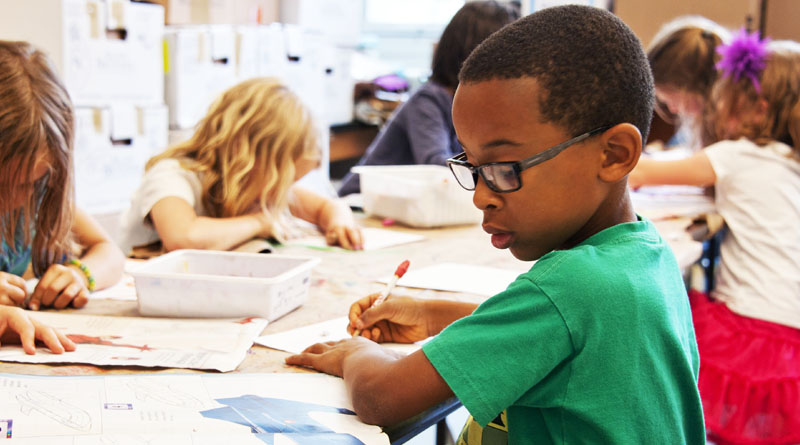
Why Metacognition Matters – A Lot!
By Liz Keable
De-mystifying metacognition
Metacognition isn’t a word that rolls easily off the tongue, or one that pops up regularly in everyday conversation, so why should we even bother about what it means?
Most people feel a certain curiosity about what goes on inside their own heads, but tend to switch off if that means ploughing through scientific words like ‘metacognition’ in order to find out.
Hopefully we are going to de-mystify ‘metacognition’ here, and establish why it’s so important. As a very personal process that goes on inside the minds of individual people, it should be of real interest to anyone fascinated by the brain, different, or otherwise.
The word itself is made up from two others; ‘meta’ and ‘cognition’, so let’s look at what cognition means on its own first!
Cognition
Most of us are born with some level of natural ‘cognition’, without ever knowing what it’s called. It’s the collective word used to describe all the mental skills that allow us to learn new things, like; gaining new knowledge, understanding what that new knowledge means, and being able to use it somehow.
We are using ‘cognition’ from birth onwards without even thinking about it, because it’s a natural inbuilt tool that allows us to work out where we belong, and know how to survive within the community where we’re born. It’s cognition that allows us to gain skills like being able to walk and talk as well as becoming familiar with the world around us through our own experiences of it.
We quickly create a personal database on which to rely for knowing what to do in certain situations, without having to make a conscious effort to remember.
Metacognition
So how does the meaning of the word cognition change, if we stick the word ‘meta’ on the front of it? Well, ‘meta’ means ‘going beyond’, ‘transcending’ or ‘rising above’ something, so as a prefix to the word ‘cognition’, it represents going beyond natural learning to think more deeply about our own thought processes.
Meta is often used to describe an activity where something turns attention on ‘itself’. That can feel a bit mind-bending in this instance, forgive the pun, because we’re talking about a mind turning attention to its own thinking. But don’t worry, all will become clear.
In order to simplify the idea a bit, some people translate metacognition as ‘thinking about thinking’, but by doing so, they take away the most important and personal part of metacognition. We can ‘think about thinking’ in order to learn more ‘facts’ about how the brain works, without ever visiting what it going on inside our own head. Metacognition is when YOU analyze what YOU’RE thinking and appreciate that by adjusting YOUR thoughts YOU can change what happens next.
Why does it matter so much?
Why then does metacognition matter? Because it’s a process that enhances our educational and life chances, allowing us to change our thinking in order to improve the results we’re getting. Those results can be about what we do in life itself, the consequences of our actions, or ‘results’ in the academic sense.
As humans we have an inbuilt desire to be better than we are at present, and it is metacognition that allows us to analyze the results we’re getting, so that we can work out in what way our ‘thinking’ is letting us down.
It’s our actions that create our results or consequences, but if we want to change our results, we have to go back to the original source of those actions. Every action we take starts out as a thought, (although often an unconscious one), so changing the way we think is the only way to improve results.
Although cognition on its own is something most of us possess from birth, metacognition is something that develops alongside our growing ability to reason, as we move out of early childhood. Unfortunately, there can be a whole range of barriers to developing the ability to think metacognitively, so many school-aged children and young people who don’t possess the skill, struggle in education without anyone realizing why.
Metacognition becomes essential when you’re being taught by someone else. We learn effectively outside school through playing, and by having a range of new experiences created through our own curiosity, which we make sense of using every day cognition. Once in a classroom setting however, where we are expected to sit still and be quiet whilst learning, we need something more! We’re no longer learning through being curious, we are faced with what other people have decided we should learn with very little in the way of ‘experience’ to guide us.
Remember we said that metacognition is a very personal process, it happens inside our heads where no-one else can go! That means in order to use it successfully, we need a really strong sense of ‘self’, particularly in relation to what we believe to be true about our own ability. In school, we also need to fully understand how the learning process works, and be able to recognize our own role in making that happen for us.
Many children are missing those pre-requisites for whatever reason, some have different brains, but others with no apparent difficulty can struggle too. None of those students are able to make any significant progress in school without being supported to develop metacognition.
Developing Metacognition
The Education Endowment Foundation reported in 2018 that metacognition was one of the most effective ways of supporting learner progress, particularly for helping students catch up if they were behind in any way. You can see why that would be the case. Any student who knows how to rummage around inside their own mind in order to find a better way of thinking about something, will be able to improve their academic outcomes.
So, how can you support a child to think more metacognitively, or even yourself if it’s a skill you’ve never mastered? Well, the first important step is to gain a more positive self-concept. Our self-concept, the view we hold of ourselves, is formed in those early years of childhood through an unconscious download of information that we don’t question at the time, because we don’t yet have the reasoning skills to do that.
With a child therefore, be very careful how you talk to them! From birth, the words you use should always reflect an encouraging and positive view of who they are and what they can achieve. Also, never let them overhear you talking negatively about yourself, because young children model themselves on those around them. You want your child to feel that they are capable learners and to become more independent of you because they believe in themselves.
The internal (and often unknown to adults) ideas a child holds about themselves and their abilities, affects their self-belief. That in turn impacts on everything they achieve in education. You can therefore change the course of your child’s life by supporting them to gain a positive self-concept.
If you’re already older and had poor experiences as a child that have led to a lack of self-belief now, remember that is not coming from you. It’s coming from downloaded information in your sub-conscious that was put there by other people a long time ago.
The good news is that you now know the key to start changing that! Every result we get in life, begins with a ‘thought’, so if you can change the way you think of yourself, you can get a different set of results, ones that are more in line with who you really are and what you really want.
Metacognition matters, a lot!

Liz Keable – Metacognition in Practice Specialist. Liz is a teacher and trainer with many years experience of working with children, young people and adults to support their learning. As a Biologist with a special interest in the learning brain, she initially taught science in High schools before transitioning into advisory work. More recently, Liz has supported the educational needs of children in specialist ‘foster care’ placements, and provided independent coaching in schools to improve the self-belief and academic progress of vulnerable young people using her Learner Success Pathway. Now, Liz focuses on supporting parents and schools to develop metacognition for learners.
Website: www.lizkeable.com
Linked In: linkedin.com/in/lizkeable
First issue of Liz’s newsletter: linkedin.com/pulse/1-acknowledging-issues-liz-keable




